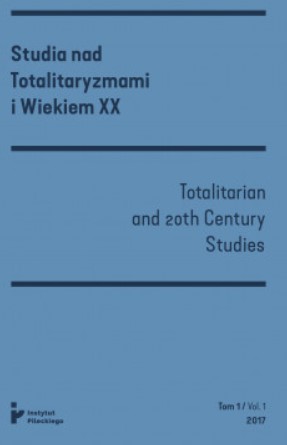Anti-Nazi Politics in Hungary during the Second World War
Anti-Nazi Politics in Hungary during the Second World War
Author(s): Ákos BarthaSubject(s): Political history, Government/Political systems, WW II and following years (1940 - 1949), Fascism, Nazism and WW II
Published by: Instytut Solidarności i Męstwa im. Witolda Pileckiego
Keywords: Anti-Nazi politics; Hungary; WW II;
Summary/Abstract: It is not easy to summarize Hungarian anti-Nazi politics in a short paper. The difficulties with which one is faced do not stem from the political effectiveness of these groups, however, but rather from the fragmentation of anti-Nazi or anti-German political forces in Hungary. Methodological questions also arise concerning anti-Nazism, anti-Fascism, anti-Imperialism and anti-German attitudes, which terms are commonly used as synonyms, albeit all four have distinct meanings, as we will see (Pócs, 2018, p. 1). Furthermore, the social reception of Nazi Germany was frequently modified in Hungary. During the years of the territorial revisions (1938–1941), when Hitler allowed Hungary to reannex some territories which had been lost after the First World War,2 the German-led “New Europe” gained greater acceptance in both Hungarian society and political life; this changed just a few years later, specifically after the defeat of the Hungarian and German Corps at Voronezh (January 1943). From that time on, more and more Hungarians started to worry about the outcome of the war (Juhász, 1983, p. 104). The objective of the present paper is an overview of the most important political forces and intellectual milieus of the country that eventually stood up to German expansionism or to the state ideology of the Third Reich.
Journal: Studia nad Totalitaryzmami i Wiekiem XX
- Issue Year: 2020
- Issue No: 4
- Page Range: 498-512
- Page Count: 15
- Language: English

